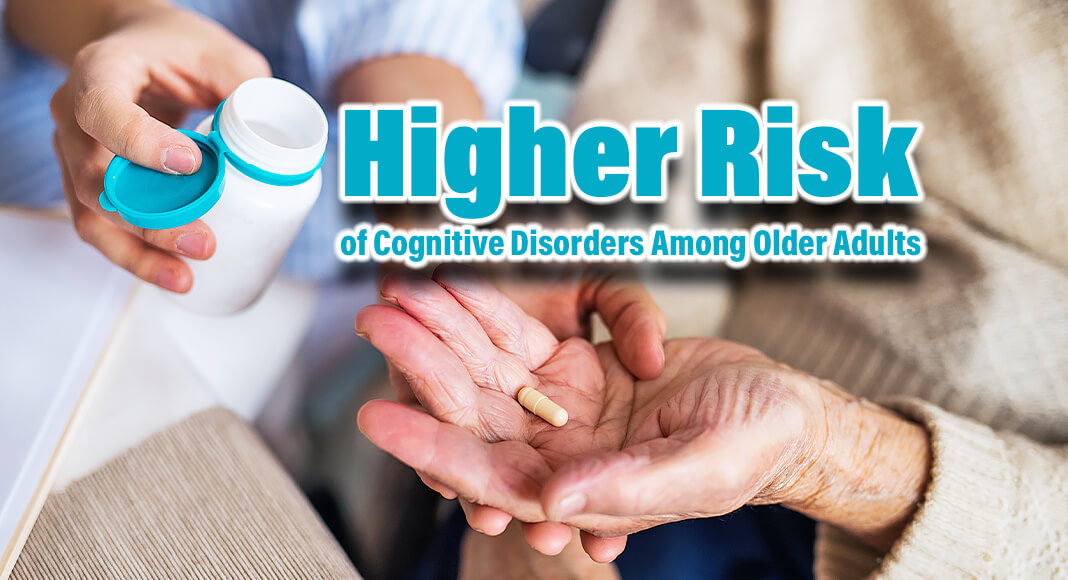
Mega Doctor News
Thyrotoxicosis — excess thyroid hormone levels in the body — has been linked to an increased risk of cognitive disorders among older adults, according to a new study from Johns Hopkins Medicine. Exogenous thyrotoxicosis (caused by ingesting thyroid medication) and endogenous thyrotoxicosis (caused by thyroid disorders such as hyperthyroidism and Graves’ disease) were both associated with a higher likelihood of developing a cognitive disorder. The study was published online Oct. 23 by JAMA Internal Medicine.
“Some prior studies have suggested that thyrotoxicosis was associated with an increased risk of cognitive disorders,” says Roy Adams, Ph.D., M.S., first author of the study and assistant professor of psychiatry and behavioral sciences at the Johns Hopkins University School of Medicine. “But results have been mixed, and exogenous thyrotoxicosis was mostly excluded from those studies.”
According to GoodRx, thyroid hormone is among the most common prescriptions in the United States. A previous Johns Hopkins Medicine study found that up to 20% of people prescribed thyroid hormone may be overtreated, placing them at risk for exogenous thyrotoxicosis.
“Our goal was to investigate whether aggressive treatment practices, which can cause exogenous thyrotoxicosis, can also possibly cause cognitive harm,” says Adams. “Understanding the negative effects of overtreatment is critical to help guide clinicians in how they prescribe thyroid hormone therapy.”
The research team selected participants for the study from a Johns Hopkins Medicine electronic health record database. The team identified 65,931 qualified participants age 65 and older who received primary care within the Johns Hopkins Health System between Jan. 1, 2014, and May 6, 2023. The average age during the first recorded primary care visit was 71, and all patients had at least two visits that were 30 or more days apart.
Results showed that all-cause thyrotoxicosis — endogenous and exogenous thyrotoxicosis combined — was associated with a 39% increase in the risk of cognitive disorder diagnosis across age groups. Of patients who experienced thyrotoxicosis, 11% were diagnosed with a cognitive disorder by age 75 versus 6.4% of patients who did not experience thyrotoxicosis. By age 85, 34% of patients who had thyrotoxicosis were diagnosed with a cognitive disorder, compared with 26% of patients who did not have thyrotoxicosis. The excess risk associated with thyrotoxicosis persisted with an analysis using statistical models that examined possible sources of bias and alternative reasons for the associations.
The study also found that among those prescribed thyroid hormone, the level of exposure to thyroid hormone correlated with the degree of risk for a cognitive disorder. Patients with a more severe degree of excess thyroid hormone had a 65% increased risk of cognitive disorder, while those with a more moderate degree of excess thyroid hormone had a 23% increased risk.
“Our results suggest that an increased risk of cognitive disorders is among the potential negative consequences of thyroid hormone excess, a common consequence of thyroid hormone therapy,” says Jennifer Mammen, M.D., Ph.D., the study’s senior author and assistant professor of medicine at the Johns Hopkins University School of Medicine. “Clinicians considering thyroid hormone therapy in older adults should avoid overtreatment by using age-appropriate treatment strategies.”
Information Source: Johns Hopkins Medicine Newsroom








